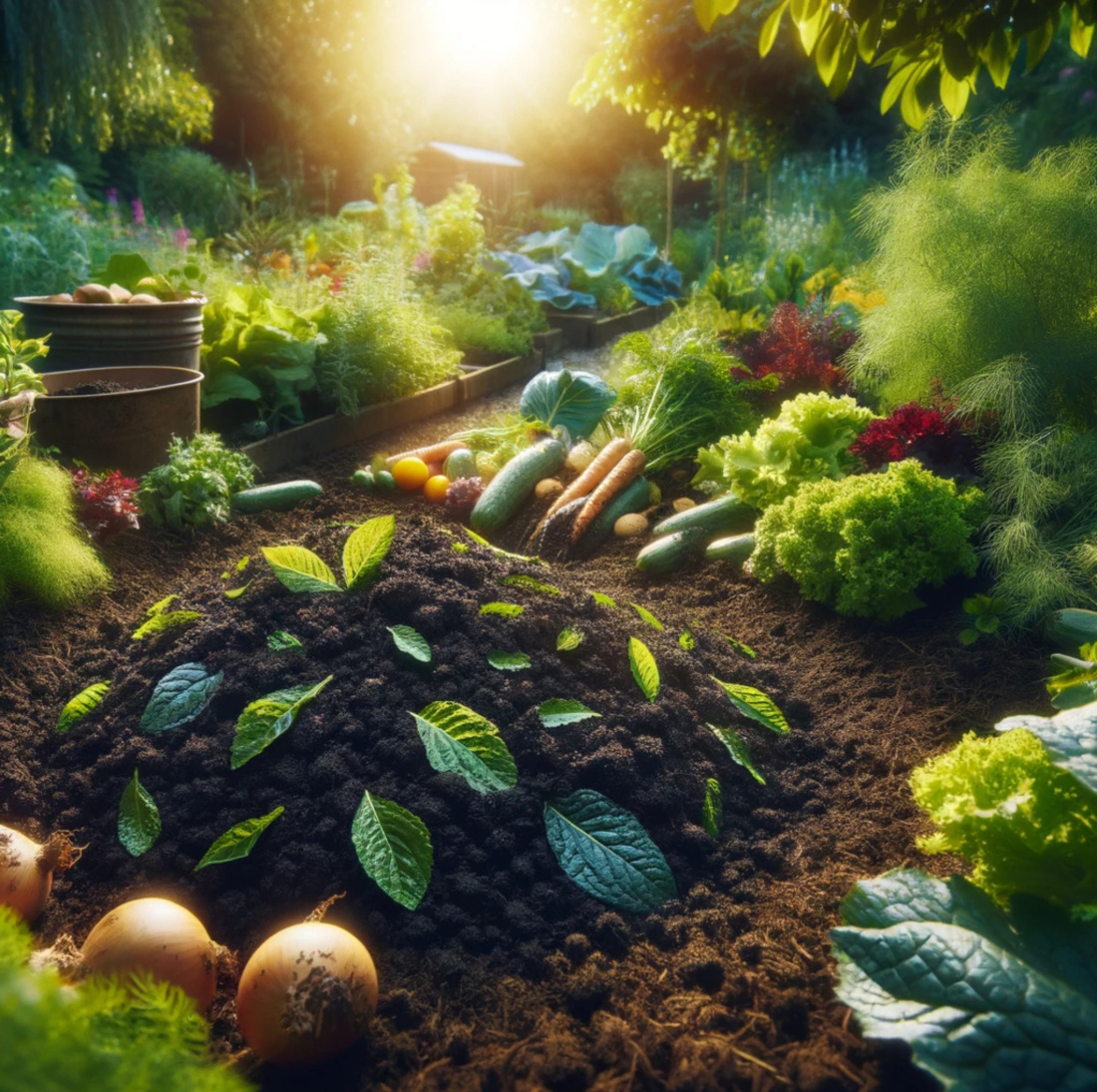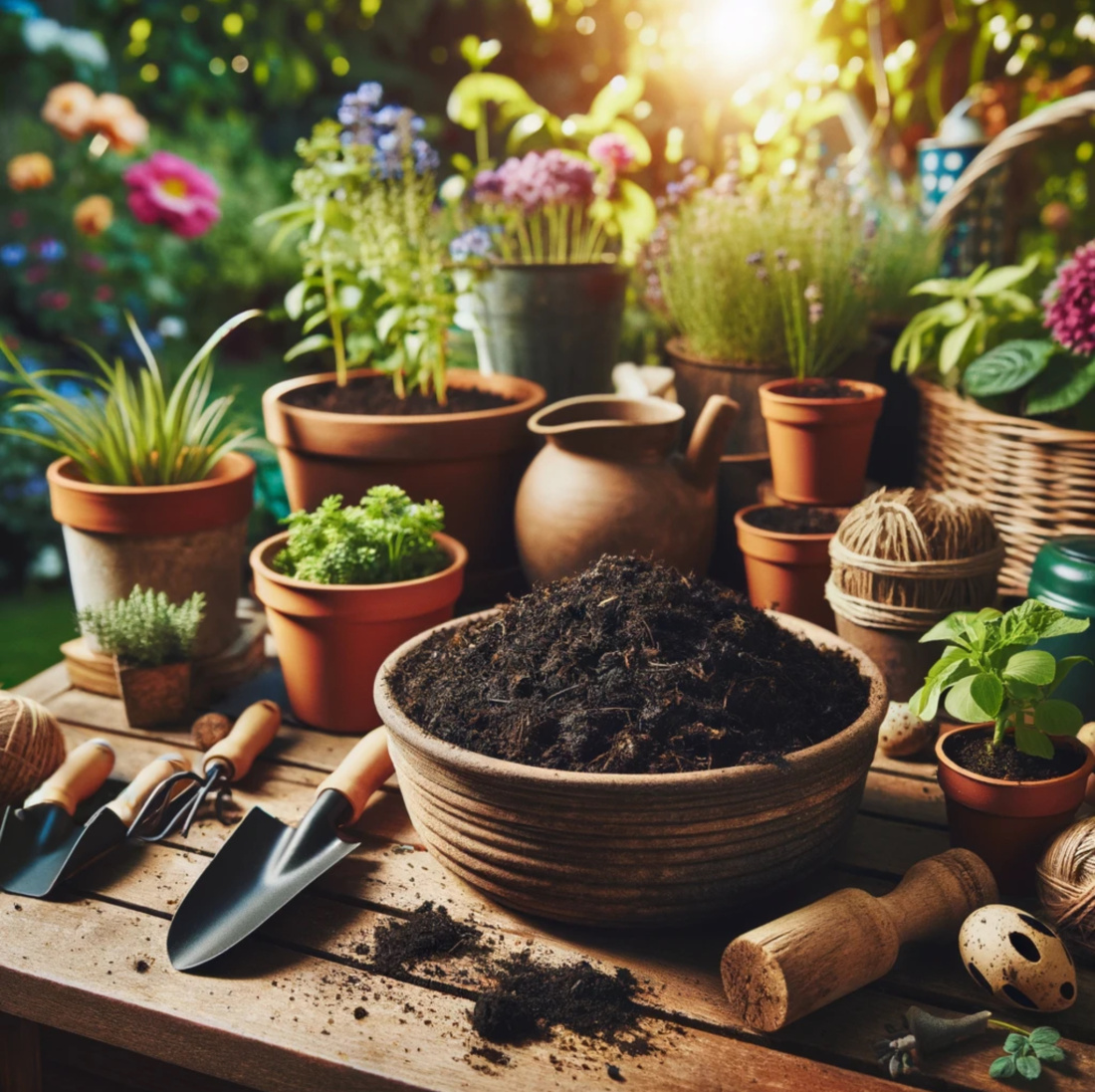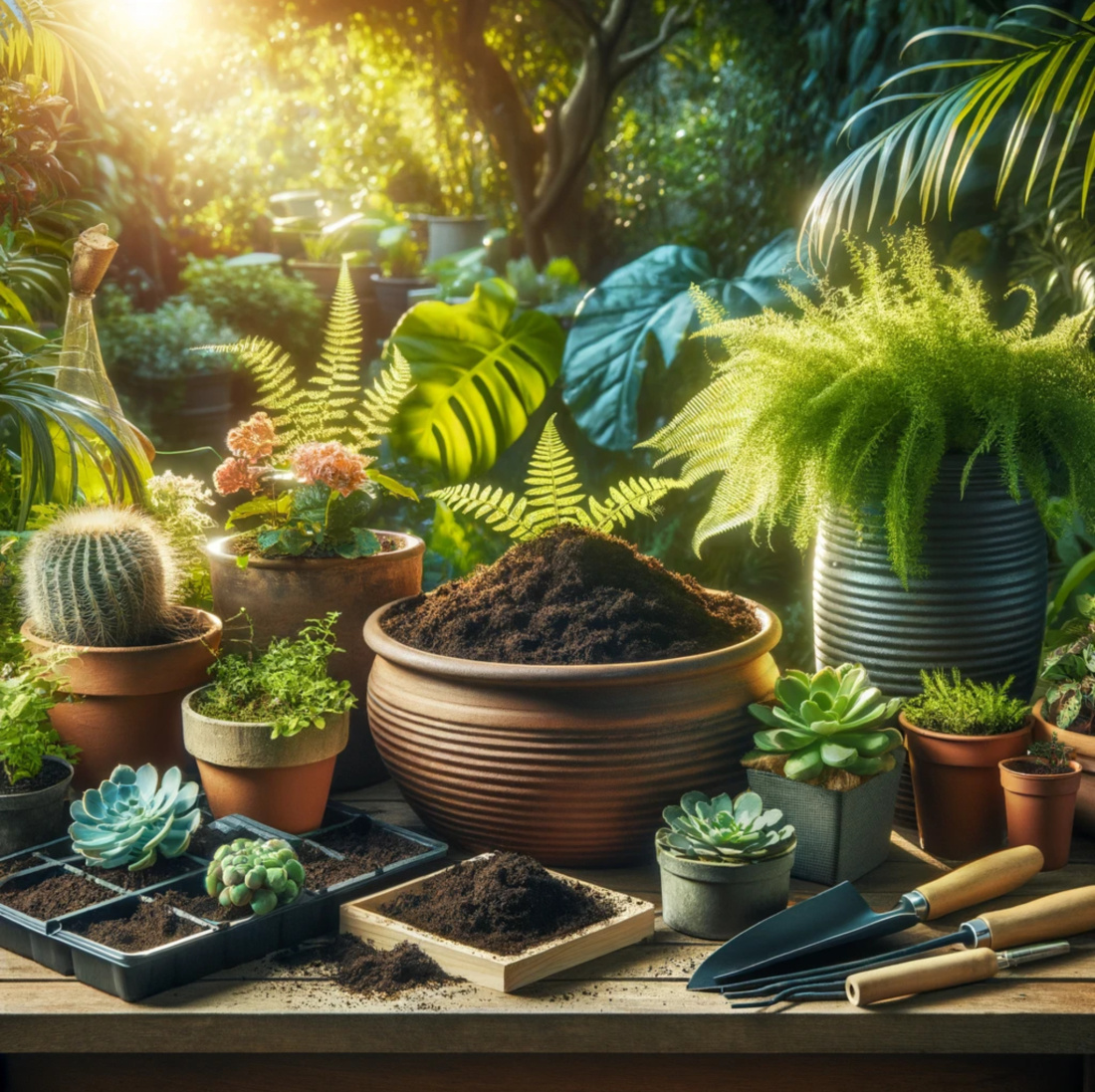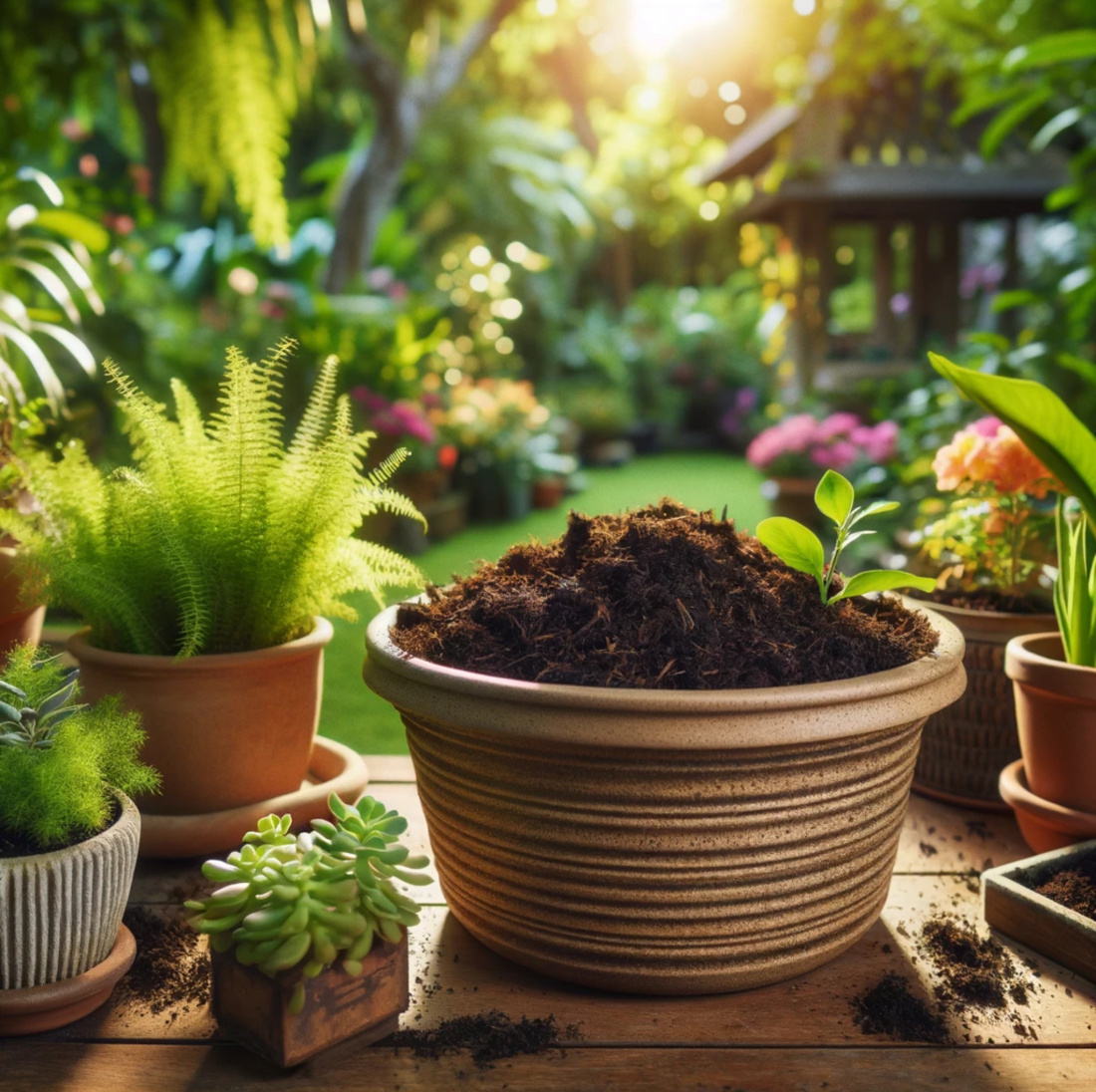
Organic Compost Introduction
Organic compost, a rich, decomposed blend of organic matter, is the heart of sustainable gardening, transforming soil into a fertile, living ecosystem.
By incorporating compost into your garden, you're not only enhancing soil structure and nutrient content but also promoting water retention, encouraging beneficial microbial activity, and supporting robust plant growth.
This guide will explore the myriad benefits of organic compost, detail its nutritional contributions, offer guidance on application methods, and discuss its compatibility with various plants and soil types, underscoring its role in environmentally friendly gardening practices.

Organic Compost Key Benefits
The application of organic compost offers extensive benefits for the garden:
- Improved Soil Structure: Compost enhances soil aeration, drainage, and water retention, creating an ideal environment for root development.
- Nutrient-Rich: Provides a diverse array of essential nutrients and trace elements, releasing them slowly over time to support sustained plant growth.
- Enhanced Microbial Activity: Introduces beneficial microorganisms that break down organic material into plant-available nutrients, improving soil health and fertility.
- Disease Suppression: The microbial diversity in compost can help suppress soil-borne diseases, reducing the need for chemical fungicides.

Organic Compost Nutritional Profile
Organic compost is a complete soil amendment, offering a balanced mix of nitrogen, phosphorus, and potassium (N-P-K), along with a host of micronutrients essential for plant health.
The exact nutrient content varies based on the materials used in the composting process but generally provides everything plants need to thrive in a form that's easily accessible to roots.

How to Use Organic Compost
Incorporating organic compost into your garden is simple and effective:
- Soil Amendment: Mix compost into the top 6-12 inches of garden soil before planting at a rate of about 3-4 inches of compost. This is ideal for preparing new beds or rejuvenating existing ones.
- Top Dressing: Spread a 1-2 inch layer of compost around existing plants to enrich the soil surface, suppress weed growth, and retain soil moisture.
- Mulch: Use compost as a nutrient-rich mulch to protect soil, retain moisture, and gradually improve soil quality over time.

Ideal Plants and Soil Types
Organic compost is universally beneficial, suitable for all types of plants, including vegetables, fruits, flowers, shrubs, and trees.
It's particularly advantageous in depleted or damaged soils, where it can restore fertility and improve structure, making it suitable for use in all soil types, from sandy to clay.

Sustainability and Environmental Impact
The use of organic compost epitomizes sustainable gardening, recycling kitchen scraps, yard waste, and other organic materials into valuable soil amendments.
This practice reduces landfill waste, minimizes greenhouse gas emissions, and decreases the dependence on chemical fertilizers, promoting a healthier, more resilient garden ecosystem.

Organic Compost Tips and Tricks
To get the most out of organic compost in your garden, consider the following tips:
- Compost Regularly: Adding compost to your garden annually can continuously improve soil health, structure, and nutrient content.
- Make Your Own: Create a compost pile or bin to recycle your organic waste into compost, offering a free, sustainable source of rich soil amendment.
- Use Quality Compost: Ensure the compost is fully decomposed and free of weed seeds or pathogens by sourcing from reliable suppliers or properly managing your composting process.

Organic Compost Conclusion
Organic compost is a foundational element for any garden, enriching the soil, supporting plant health, and fostering an environmentally sustainable gardening practice.
By incorporating organic compost into your soil management routine, you can enjoy the numerous benefits it offers, from improved soil structure to enhanced plant vitality.
We encourage you to embrace composting, share your experiences, and contribute to a community of gardeners committed to nurturing the earth and cultivating vibrant, healthy gardens. Visit our shop to try organic compost in your garden.
Together, we can make a positive impact on our environment, one garden at a time.


